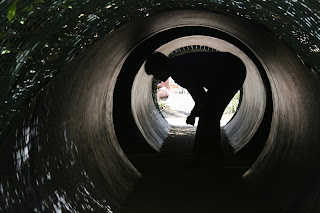We are gearing up to open the new nursery behind the Finca Project/Coope Pueblos offices, and a lot of the past week and a half has been dedicated to building, painting and getting the nursery ready to hold the baby trees we intend to sell.
It has been an interesting past two weeks as far as what I’m learning and the surroundings I am in. My host family has been very kind to me and continues to help me improve my Spanish. My host mom, Rosa, also prepares delicious home-cooked meals—I didn’t realize how much I enjoy eating rice and beans!
I’ve also had some quality conversations with my host dad, Roman, and my host brother, Gilbert, about Costa Rican farm life and culture. I’ve been soaking in the food, the music, the soccer games, the news, and especially the language, and I feel like there is more the grasp each day. I’m also learning a lot of Spanish, and while I understand more and more, I feel like my speaking skills need a major boost.
As for the environment here, it’s unbelievable. Aside from living on a beautiful finca with a river down the hill that I have to cross each day, I got to experience the beauty of a waterfall nearby and as we swam in the river and trekked through the forest growth, I began to really marvel at the natural beauty around me. However, with that amazing scenery comes new insects that are not so amazing, but I think that’s the biggest annoyance I have here thus far (mosquitoes galore and enormous roaches).
Not only am I learning a lot about Costa Rican culture, I am also getting some great ideas for my thesis next year, all revolving around agricultural policy and international economics. The readings we have had for seminar, as well as other books that I have found in the Finca Project library have helped shed light on the way cash crops are being produced and sold in developing countries like
Overall, I’m glad that I made it down here, but as with all my other long-term travels, it is difficult to be away from family and friends and familiar conveniences. I feel like a have a large challenge ahead of me, and it is also challenging to think that what I am doing here can actually help make a difference to what has been so ingrained in the way things are currently operating. I think that if I can focus my efforts on something specific, I will have an easier time justifying my stay here (in other words, that my presence here is actually doing something good for the community).
Pura vida,
candice




